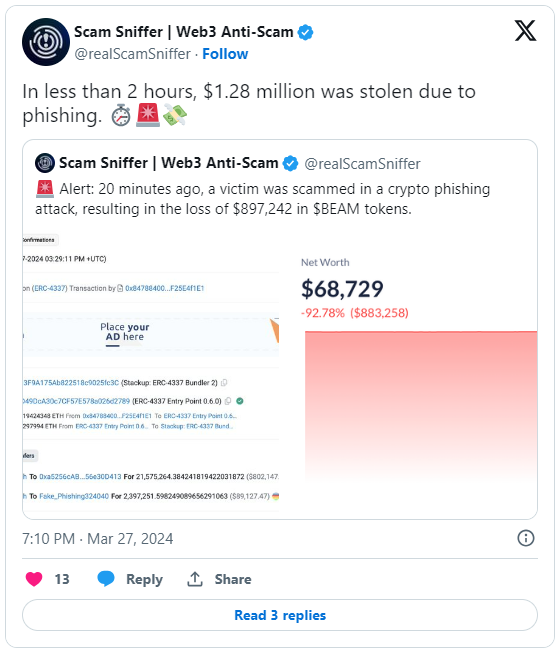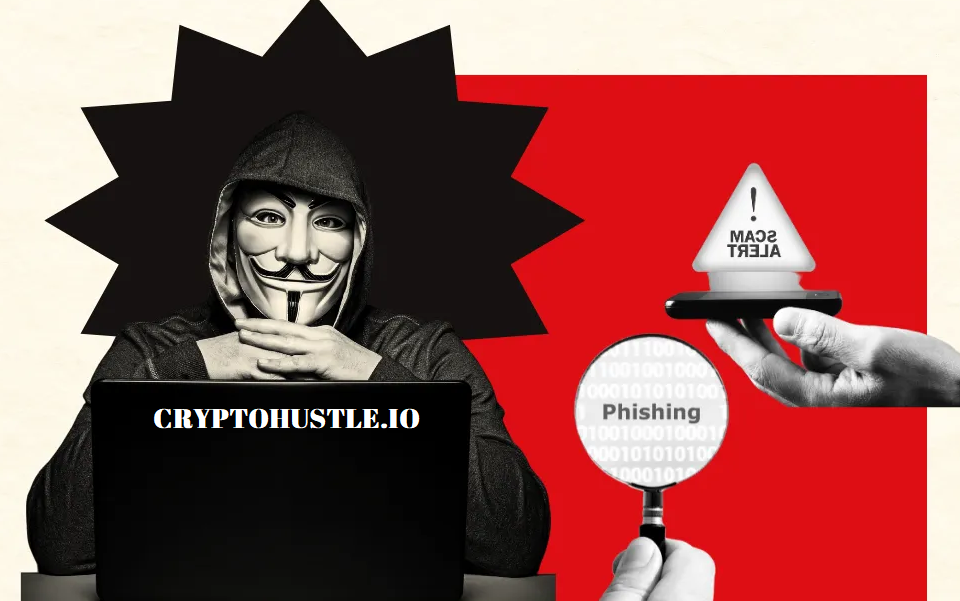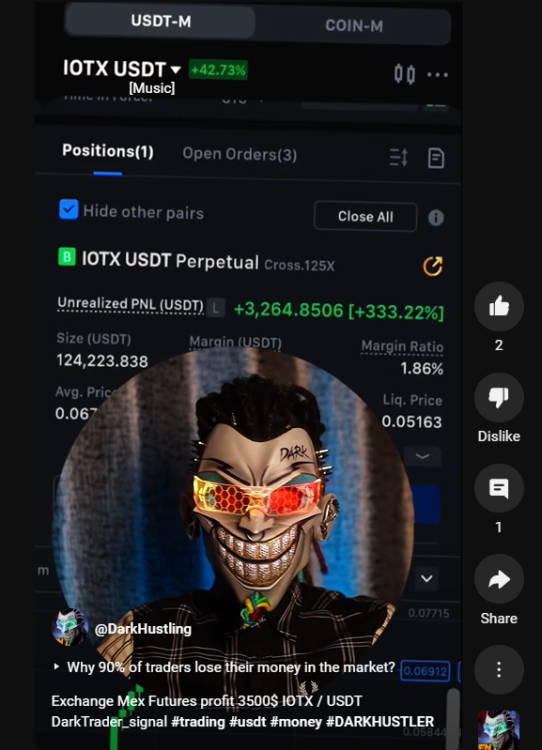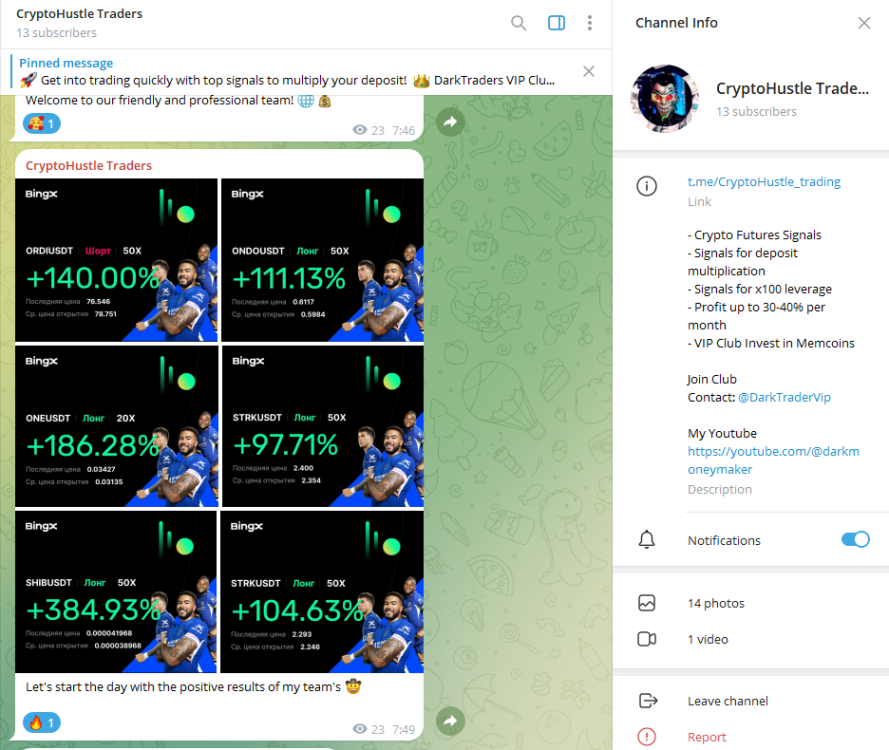Telegram communication!
You can also contact the guarantor in Telegram
-
Posts
 8,388,607
8,388,607
-
Joined
-
Last visited
-
Days Won
473 -
Time Online
5337д 6ч 36м 24с
Content Type
Profiles
Forums
Events
Blogs
Downloads
NFT
Videos
Everything posted by ESCROW SERVICE
-
During the late hours of Tuesday, the cryptocurrency community witnessed yet another breach. Munchables, the Ethereum Layer-2 NFT gaming platform, disclosed being compromised in a post on X. The crypto theft, which briefly seized more than $62 million, took a surprising turn of events following the revelation of the attacker's identity, unleashing a series of unexpected consequences. Crypto Developer Turns Hacker In a startling turn of events, Munchables, a gaming platform powered by Blast, fell victim to a security breach yesterday, resulting in the pilfering of 17,400 ETH, equivalent to about $62.5 million. Following the announcement on X, crypto sleuth ZachXBT promptly disclosed the stolen amount and the destination address of the funds. Subsequent revelations indicated that the crypto heist was perpetrated from within rather than by external actors, with one of the project's developers being implicated. Solidity developer 0xQuit shared pivotal details on X regarding Munchables. The developer highlighted that the smart contract in question was a "dangerously upgradeable proxy with an unverified implementation contract." The breach appeared deceptively simple, involving a request to the contract for the stolen funds, albeit necessitating authorization from the attacker, underscoring its internal orchestration. Following a thorough investigation, 0xQuit determined that the attack had been meticulously planned from the project's inception. Leveraging the contract's upgradability, the developer allocated a substantial ether balance to themselves before transitioning to an ostensibly legitimate contract implementation. When the total value locked (TVL) reached a significant threshold, the developer swiftly withdrew the balance. DeFiLlama data indicates that Munchables boasted a TVL of $96.16 million prior to the exploit, which has since plummeted to $34.05 million. According to reports by BlockSec, the funds were transferred to a multi-signature wallet, with the attacker eventually sharing all private keys with the Munchables team. These keys provided access to $62.5 million in ETH, 73 WETH, and the owner key containing the project's remaining funds. Based on the Solidity developer's estimations, the total sum approached nearly $100 million. Subscribe X for more news updates @cryptohustleio
-
During a recent wave of crypto phishing attacks, victims collectively faced a loss of $1.28 million in just under two hours. The surge in such fraudulent activities has alarmed cybersecurity specialists, prompting alerts from anti-web3 scam platforms like Scam Sniffer to caution the crypto community about ongoing threats. Investigations revealed that one user fell prey to a phishing attack, resulting in the loss of $787,242 worth of $BEAM tokens, while another suffered a loss of $389,154 in $STONE tokens within a short timeframe. These incidents underscore the escalating risks associated with crypto trading amid worsening phishing threats. Encouraging Trends in Phishing Reports According to the February report by ScamSniffer, around 57 thousand individuals were victimized, losing nearly $47 million to phishing scams in a single month. Although there's a downward trend, the number of victims reporting losses exceeding a million dollars decreased by 75% compared to January. Ethereum's mainnet has become a prime target for phishing attacks, constituting over 78% of the total theft volume, with 86% of stolen funds being ERC20 tokens. Hackers deploy well-known phishing tactics, utilizing deceptive signatures like 'allow', 'seed', 'bounty', 'permit', 'IncreaseAllowance', and 'Uniswap Permit2' to gain unauthorized access to victims' assets. Cybercriminal Tactics at Play Hackers frequently employ Twitter impersonation tactics, creating fake accounts to lure users into phishing websites, exploiting their trust in social media platforms. Additionally, wallet-draining techniques, such as counterfeit wallet and approver tokens, facilitate phishing attacks. The sharp uptick in phishing incidents underscores the heightened risk of digital asset loss. Recent reports indicate that $104 million in crypto fell victim to phishing in the first two months of this year alone. Users must remain vigilant and implement robust security measures to safeguard against phishing schemes. Subscribe X for more news updates @cryptohustleio
-
Elon Musk has introduced a paid verification model on X, formerly known as "Twitter Blue," to combat scammers and spammers who thrived on the platform prior to its acquisition. Elon Musk will no longer charge influential accounts on X for certain premium features if they meet certain conditions. However, it turns out that these conditions are also applicable to accounts involved in cryptocurrency scams. On March 28, Musk announced that accounts with 2,500 verified followers will no longer need to pay for "Premium" features on X. Additionally, accounts with more than 5,000 followers will receive free access to "Premium+." X offers paid subscriptions for three levels of premium services - "Basic," "Premium," and "Premium+" - gradually unlocking more opportunities for content creators on the X platform. However, the ability to purchase verification on Twitter allows scammers and dishonest actors to easily impersonate influential individuals and lure their followers into various scams. Subscribe X for more news updates @cryptohustleio
-
South Korean authorities apprehend scammers involved in a cryptocurrency fraud amounting to $4.1 million. South Korean police have apprehended two individuals in their 20s and 30s for defrauding a senior citizen of 5.5 billion won (approximately $4.1 million) in a cryptocurrency scam. The scammers promised significant profits on crypto investments from September to December 2022, guaranteeing a 70% return on monthly investments of 1 billion won. The victim handed over a total of 5.5 billion won across six transactions, based on falsified balance certificates provided by the scammers as proof of investment. Despite claims of a 20 billion won balance in cryptocurrency, none of the victim's funds were deposited into the crypto trading account. While the fraudsters have been apprehended, details regarding the recovery of the funds remain undisclosed. Meanwhile, Terraform Labs co-founder Do Kwon, a prominent figure in South Korea's cryptocurrency scene, has been released from prison in Montenegro after facing extradition requests from the United States and South Korea. Kwon's release follows allegations related to the collapse of the Terra ecosystem in 2022. The decision was made by the Supreme Court Council, which is set to consider a judgment regarding his extradition to South Korea. Additionally, four employees of South Korean crypto exchange Coinone have been indicted for allegedly using illegal methods to amass profits exceeding $2.26 million during coin listings from various projects. Subscribe X for more news updates @cryptohustleio
-
This post cannot be displayed because it is in a password protected forum. Enter Password
-
The Mentor did a great job! Almost immediately after launching the advertising campaign, I started receiving messages in my inbox about purchasing access to the VIP channel. When I opened my smartphone in the morning, I saw many new messages about access purchases. It surprised me; I didn't expect so many people. On the first day, access to the VIP channel was sold 4 times for $200 each, totaling $800. The next day, there were 5 more purchases, including two who opted for the gold access at $500 each. Then the number of buyers began to increase. In total, within a week, 37 people purchased access, bringing in a total of $8,500. I am amazed at how easy it all turned out to be. The Mentor is a true guru in this matter. I am also pleased that thanks to the advertising, my YouTube channel and the number of subscribers have significantly increased.
-
Embark on a riveting exploration of my odyssey through the labyrinthine pathways of the dark web marketplace. Join me as I unveil the secrets behind my journey, revealing how I leveraged hacking skills to amass a staggering million-dollar income. Delve into the world of cyber intrigue and high-stakes maneuvering as I share insights, challenges, and triumphs encountered along the way. From clandestine transactions to ingenious strategies, this video offers a glimpse into the realm where anonymity reigns supreme and fortunes are made in the shadows. Prepare to be captivated by the untold story of my lucrative exploits in the dark web.
-
Experience seamless cryptocurrency withdrawals with our Crypto Wallet Drainer! In this video, we'll guide you through the simple yet secure process of transferring your digital assets from your wallet to any destination you desire. Say goodbye to complicated withdrawal methods and hello to efficiency and convenience. Whether you're a seasoned crypto investor or just starting out, our platform ensures hassle-free transactions, giving you peace of mind with every transfer. Join the ranks of satisfied users who trust our innovative solution for managing their crypto wealth. Watch now and unlock the power of easy withdrawals with Crypto Wallet Drainer.
-
Hey folks, today we're diving deep into the realm of hacking legends and those who paved the way for cybersecurity. The virtual landscape has become our daily playground, with flat arcade games morphing into immersive 3D experiences that blur the line between gaming and reality. It's a world where nothing seems too surprising anymore. The year 2023 will be etched in history not just for its economic transformations but also for the world's increasing dependence on the Internet. Wireless networks are weaving a tighter web, and concerns about cybersecurity are escalating, rightly so, as internet broadcasting expands and digital technologies become more pervasive. Information security has emerged as a critical global issue, with lone hackers emerging as key players in cybersecurity culture. Crafting our own ranking of the world's top hackers. Cybersecurity is advancing at breakneck speed, making it feel nearly impossible to keep up with the latest trends. Yet, there are individuals who defy these advancements, not only breaching resources but infiltrating corporate networks. But without acknowledging the names of these icons, grasping the full scope of the issues is futile, for they are the architects of the modern Cyberworld. Back in the day, the term "hacker" signified membership in an exclusive circle of enlightened minds. Groups like Germany's Chaos Computer Club and the USA's Legion of Doom were particularly renowned. These hackers, legends in their own right, have left an indelible mark on the virtual world's history. Many of them rose to fame through their hacks, making waves in the media. Some are also revered as influential industry experts, not just for uncovering program vulnerabilities but for their adeptness at exploiting them. Meet a true cybersecurity legend, albeit a sadly infamous one. He made headlines when mainstream media barely covered cybersecurity or hackers. He's a unique figure who once found himself on the FBI's most wanted list. At one point, he breached computers of major corporations and hijacked software from cellphone manufacturers and internet providers. The term "computer hacking" has evolved into a genuine threat to civilization and modern technologies. But during the chaos era, such actions were seen as idealistic—merely identifying and exploiting system vulnerabilities. Though unauthorized, it wasn't a secret, nor was it condoned; it was detrimental to victims. Our hacker never pursued financial gain; he was hardly interested in monetary rewards. It was mostly done for the sheer thrill, for the community, and for information security specialists. After all, stealing information occurred in secure systems. Kevin Mitnick was among the first to put cybersecurity principles to the test, experiencing firsthand the consequences of cybercrime laws. He's widely regarded as a highly influential figure in the information security realm. Today, he consults for Fortune 500 companies, collaborates with governments worldwide, and even delves into teaching, offering insights into social engineering. He's authored several books on becoming the most renowned hacker globally. Despite being officially labeled a white hat hacker, some aspects of his activities tread a gray area. It's within this expansive realm that politically trained activists and hackers operate, serving both our interests and yours. Reportedly, in 2014, he launched an exploit exchange ground zero for Minik. Critical software vulnerabilities, lacking patches, were auctioned here. Dubbed the homeless hacker, he breached IT systems in library internet cafes and other public networks worldwide. For notoriety, he utilized an unprotected Yahoo content management tool at the age of 20. There was no financial motive; he merely sought to alter an article by inserting a fake quote from the Attorney General. Lama's modus operandi was unconventional. He'd often hack systems and then notify both victims and the press. Sometimes, he'd even assist in fixing vulnerabilities and provide consultancy to cybersecurity specialists. However, his foray into hacking the New York Times' information security didn't end well; the building sued him. He found himself under house arrest, and in 2018, social media buzzed with news of his demise, yet there's been no official confirmation, without delving into specifics. This hacker is credited with one of the most financially damaging hacks in US history. His exploits, coupled with the subsequent sale of credit card data, wreaked havoc on several major companies. His hacking journey began back in high school in Miami, where he even formed his own group, and in the criminal commerce scene, he's hailed as one of the finest hackers and moderators. In 2022, Gonzalez found himself in cuffs in New York, charged with debit card fraud after pilfering data from a whopping 1,000,000 card accounts. His loot? A staggering $200,000,000. And all achieved in a mere 2 years. To dodge the slammer, he struck a deal to spill the beans as an informant for the fuzz. Yet, even during this stint, he couldn't resist tinkering with security systems to siphon off some cash. The coordinated strike on an American realtor in 2005 sparked a colossal breach of credit information. Leveraging a vulnerability, our infamous hacker and his crew waltzed into several corporate networks, pocketing a cool $256,000,000. Fast forward to 2015, he found himself behind bars, with the federal prosecutor dubbing his exploits as brazenly unprecedented. Indeed, this young Cuban-origin hacker rightfully earns the crown as one of the slickest credit card swindlers and most legendary hackers of all time. These British hackers are infamous for pinpointing vulnerabilities, even in military IT networks. In '96, they infiltrated an Air Force base network, breezing past the information security of the Korean Atomic Energy Research Institute. When nabbed, they faced accusations, quite understandably, of almost triggering a third world war, perhaps even a nuclear one. They spilled the beans from Korean institutes to American military systems. In their defense, they claimed to be hunting for evidence of a global conspiracy, concealing extraterrestrial communication concealed within UFOs visiting our planet. Some pundits draw parallels in motivation between these British hackers and Gary McKinnon, embroiled in the mother of all computer hacks. He busted into the US Department of Defense's computer network. It was a virtual slap in the face to the entire military apparatus. Gary claimed he was after classified White House data on UFOs. He believed it could benefit all humankind, not just a select few. The Scot infiltrated NASA's entire system, knocking out no fewer than 200,000 computers. Within a day, he plastered a banner on the space agency's official website: "Your Security - Absolute Nonsense." If we take McKinnon at his word, he indeed stumbled upon logged contacts in NASA's servers. These logs detailed over 400 cases, backing the existence of aliens, modern technologies, and regular encounters with them. McKinnon's legal saga is ongoing. The USA clamors for his extradition, but the British government's nod to hand over the hacker to the Americans has met formidable resistance from Harry's legal eagles. A groundswell of public outcry ensued. In 2012, Theresa May, then Home Secretary, even reversed the decision to extradite the hacker. Kevin Poulsen— He kicked off his hacking escapades early, at a sprightly seventeen. He cracked the US Department of Defense's IT system, but sans any cataclysmic repercussions like massive data breaches or deploying ransomware. The FBI swooped in to investigate, and as they dug deeper, Kevin vanished into the shadows. Along the way, he penetrated several federal computers, bugged phone calls at multiple consulates in Los Angeles, and even hacked the FBI system. By clicking on the ad link or checking out the video description, you'll delve deeper into the Official Community of Cybersecurity Specialists at Dark Eden Academy. I bet you enjoyed the video. Let's amp up the motivation to churn out more thrilling content. Share the video and hit subscribe on our social networks, where we dish out unique content that sails through YouTube's moderation checks. _ Cybersecurity, Hacking, Data Breach, Cybercrime, Information Security, Hacker Culture, Digital Theft, Debit Card Fraud, Credit Card Theft, Cybercriminals, Gonzalez, Internet Security, Network Security, Computer Hacking, Virtual Crimes, Dark Web, FBI, Law Enforcement, Cyber Investigations, White Hat Hacker, Black Hat Hacker, IT Security, Cyber Defense, Vulnerabilities, Exploits, Breach Response, Incident Management, Insider Threats, Corporate Networks, Data Protection, Privacy, Identity Theft, Financial Fraud, Digital Forensics, Risk Management, Legal Battles, Extradition, Government Surveillance, National Security, Conspiracy, Alien Contact, UFOs, Espionage, Computer Networks, System Compromise, IT Infrastructure, Data Security Measures, Cyber Threats, Law Enforcement Collaboration, Ethical Hacking, Hacktivism, Online Privacy, Data Privacy Laws, Security Breaches, Cyber Attacks, Financial Crimes, Digital Currency, Cryptocurrency, Phishing, Social Engineering, Cyber Espionage, Malware, Ransomware, Data Encryption, Network Intrusion, Data Loss Prevention, Cyber Resilience, Cyber Hygiene, Cyber Warfare, Network Monitoring, Incident Response, Cyber Threat Intelligence, Zero-Day Vulnerabilities, Penetration Testing, Cybersecurity Training, Cybersecurity Policies, Data Protection Regulations, Cybersecurity Awareness, Information Governance, Cyber Insurance, Cybersecurity Consulting, Cloud Security, Endpoint Security, Internet of Things (IoT) Security, Biometric Security, Two-Factor Authentication, Digital Footprint, Cyber Ethics, Cyber Law, Dark Web Marketplaces, Cyber Fraud Prevention, Cybersecurity Careers, Cybersecurity Best Practices, Cybersecurity Threat Landscape, Cybersecurity Strategy, Cybersecurity Frameworks, Cybersecurity Trends, Cybersecurity Challenges, Cybersecurity Solutions, Cybersecurity Innovations
-
"Hello everyone! ? Ready to invest 20-50к in your gray scheme! I need proof of its effectiveness from you! I'll provide the investments! Offers in DM
-

honeypot Earnings scheme creating scam token honeypote
ESCROW SERVICE replied to Honeypot's topic in DISCUSSIUNS
No information has been provided! Topic closed -

Last Month, Crypto Scammers Pilfered $47M from 57,000 Victims
ESCROW SERVICE replied to ESCROW SERVICE's topic in POLITIFI
@MENTOR As a hacker, I can't help but marvel at the audacity of these phishing schemes! A well-planned heist in the digital realm -
In the initial two months of the current year, nearly 97,000 individuals fell prey to phishing schemes, resulting in significant losses amounting to $104 million. Specifically, January witnessed losses of $57.7 million, followed by an additional $46.8 million in February. Impersonated Twitter accounts and fake profiles on the popular social media platform X emerged as the primary perpetrators, luring victims through phishing comments. The Ethereum mainnet bore the brunt of 78% of the total thefts, primarily targeting ERC-20 tokens, which accounted for 86% of the stolen assets. Scammers capitalized on users' actions such as approving transactions and signing phishing signatures. Account abstraction wallets emerged as the preferred tool for draining wallets, boasting enhanced functionality and compatibility. Despite a surge in the number of victims in February compared to January, there was a decrease in the overall stolen amount and a reduction in the number of victims losing over $1 million. Prominent entities like MicroStrategy, Compound Finance, Rocket Pool, Blockchain Capital, and Vitalik Buterin experienced unauthorized access to their accounts, resulting in significant financial losses. This concerning trend mirrors scammers' growing preference for 'approval phishing' techniques, manipulating victims into signing transactions that provide unauthorized access to their wallets. An FBI report highlighted millennials as the most vulnerable group to investment fraud. Remain vigilant to safeguard yourself against evolving crypto scams. Subscribe X for more news updates @cryptohustleio
-
Subscribe to our channel
Don't miss important news
Subscribed
3504
TOR LINK
dstor3guxi7zqmmwgds5itdt5c4u3btq4aravrgajewmhlyr5xazkpyd.onion
To enter the onion domain of the site, you need to install the TOR browser. After that you can go to our mirror
Clearnet mirrors
Resources in Telegram
The user regularly conducts transactions through the service guarantor and has positive trading statistics on the site. Most likely he can be trusted and work directly. With the rules of work through the guarantor you can familiarize yourself here. CLICK
The user has not conducted a single transaction through the guarantor. You can read about the rules of working through a guarantor here. CLICK
The user has made a security deposit on the forum. He is a verified seller and guaranteed to conduct all transactions through the guarantee service. You can read more about the deposit system here. CLICK
The user has no security deposit on the forum, when working with him do not send prepayments and always involve the guarantor in transactions. You can read more about the deposit system here. CLICK
The user's status is "UNVERIFIED" indicating that he has not verified his account on the Darknet. You can pass verification by providing positive reviews and recommendations about yourself. You can read more about how to check patency. CLICK.
The user status "VERIFIED" indicates that the seller has been verified by the Forum Administration. You can read more about how to pass the verification here. CLICK.
×
- Create New...
.gif.3d1d5323e9b6ce95f2a2dd4e30872dc6.gif)
.gif)
.gif)
.gif)
.gif)

















.gif)